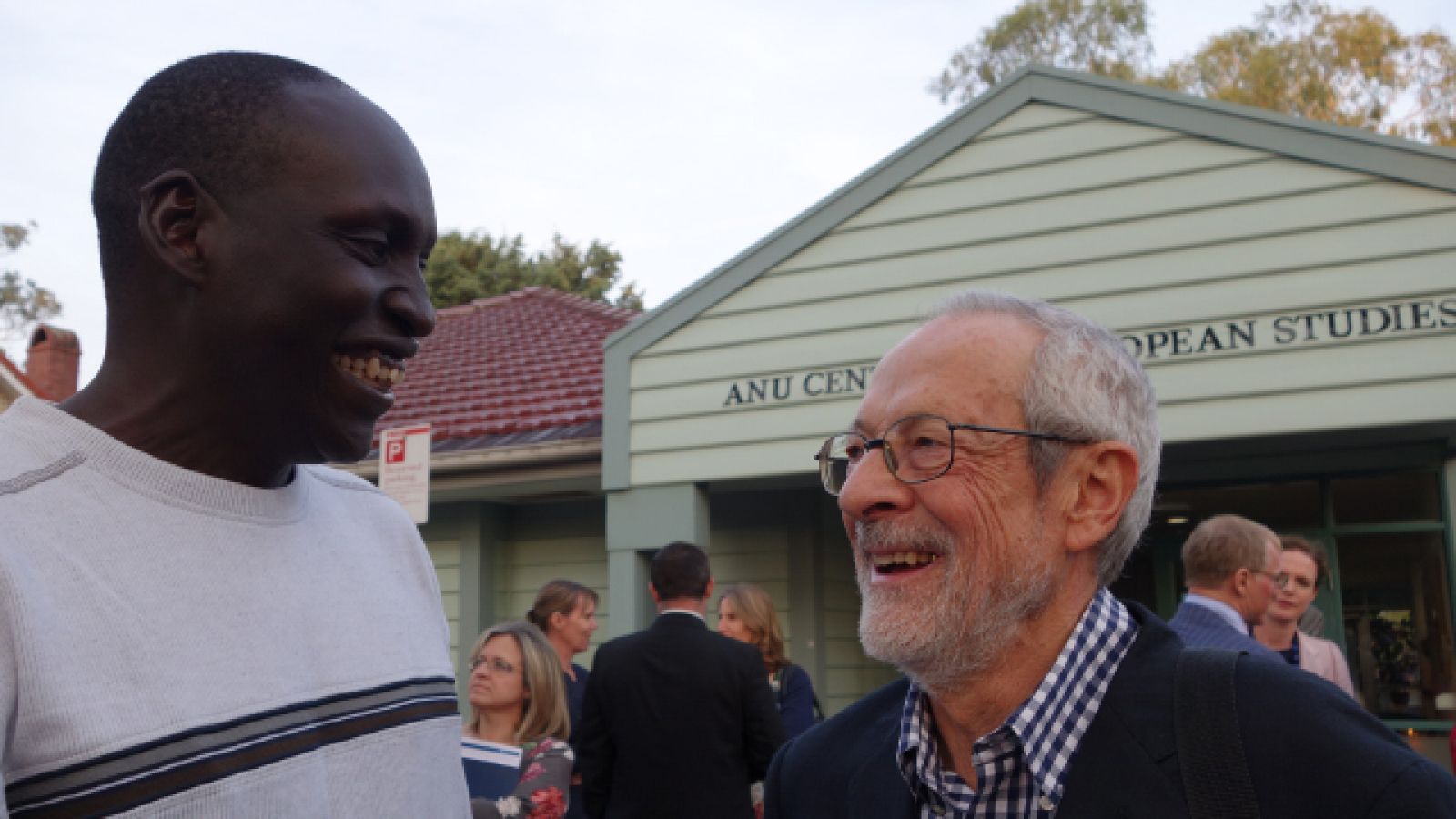Former refugee Atem will address United Nations

PhD candidate Atem Atem (left) and Professor Stephen Castles of University of Sydney at an ANU Centre for European Studies function
An Australian National University PhD student has won a grant to address the United Nations in Geneva later this year about his experiences as a former refugee and those of other refugees in Australia.
Atem Atem, a doctorate candidate in the ANU Centre for European Studies, received the 2017 John Gibson Refugee Community Leadership Grant from the Refugee Council of Australia.
“It’s exciting for me to be involved in that process,” says Atem, a Sudan civil war survivor and Sydney-based researcher of South Sudanese families.
“I hope to have the opportunity to engage with some of the refugee communities in Australia. I’ve begun meeting communities here in Sydney, asking them what they want me to say.”
Atem has been helping the South Sudanese community since his resettlement in Australia in 2002 under a humanitarian program. Back then, he was one of few South Sudanese here who spoke English, learned while waiting in refugee camps in Kenya.
Atem interpreted for new arrivals as they navigated health and immigration services, advised government employees on how to better understand his community, and defended his people from politicians’ attacks.
After gaining his degree in medical laboratory sciences at the University of Canberra, Atem became a lab technical officer and later a lab medical scientist, and studied community development at Canberra Institute of Technology at night.
“By the end of 2008, I decided I wanted to do something else,” he says.
“I thought if immigration and other public servants wanted to know more about us, the best thing to do was study public policy.
“I thought if I could think like them, I could better help them, so I came to ANU to do a Master of Studies.”
He’s since changed his Masters to a PhD, and his research project includes assessing the federal government’s policy that humanitarian migrants need settlement support for five years, after which the migrant will become self-sufficient.
“I am also interested in how much does someone’s background influence this process, for example, does being from a refugee camp or surviving war impact someone’s ability to resettle successfully.”
Tim O’Connor, Acting CEO of the Refugee Council of Australia, says Atem is a tireless advocate for refugee communities both in Australia and abroad.
“We believe that people from refugee backgrounds should be at the front and centre of all refugee advocacy, and Atem takes on this responsibility having been chosen from a top class field of applicants,” Mr O’Connor says.
“This grant will enable Atem to take his message right to the heart of the United Nations, and to raise the profile of the important work that he and many others are doing, to achieve justice for refugees in Australia and internationally.”
Atem’s PhD supervisor and Director of the ANU Centre for European Studies, Professor Jacqueline Lo, says she’s very proud of his achievements as both a scholar and community leader.
“His work is a great example of the rigorous, socially-engaged research that the College of Arts and Social Sciences is internationally recognised for.”